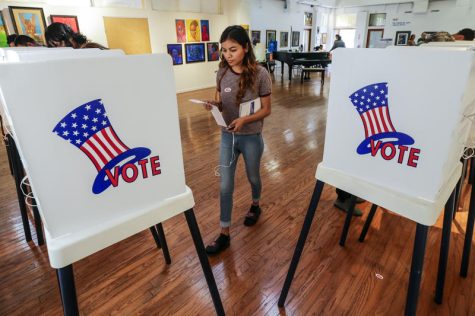Surging real estate market not good news for all
April 20, 2021
The Coronavirus pandemic has created a unique set of market conditions here in the United States. It has been absolutely devastating on the working class and tough on a lot of industries, but the financial markets have been booming, seeming to defy gravity at times.
The stock market roared back to all-time highs a mere few months after a full economic shutdown and still hasn’t lost steam. Retail investing has seen a big uptick marked most notably by the Reddit related surge in stocks like Gamestop and AMC, which sent a hedge fund into bankruptcy and left many individual investors with a small fortune in a very short time.
The real estate market has been seeing a lot of the same success. It would be natural to think that the housing market was suffering right now considering the unemployment, poverty and eviction crises wrought by the pandemic. Surely fewer people are buying houses right now, right? And yet, here we are with property values skyrocketing among an improbably timed sellers’ market. Let’s take a look at how and why houses are selling so fast, and what it means for the everyday American.
Houses are being sold as fast as they’re listed right now. But they aren’t going to people like you and me. In a lot of cases they aren’t going to anyone who plans on living there at all. Right now, investors and corporations alike are dealing with a massive influx of cash, and the unexplainably inflated market has pushed them right into real estate. Real estate has long been considered a good place to keep your money safe during tumultuous times on the market and it’s pretty easy to turn a profit renting. While the pandemic was devastating to most, the top wealth earners had one of their best years ever. So much so that they aren’t comfortable having all of it in one market and turned their attention to housing. So much money has flooded the market that houses are oftentimes getting multiple cash offers within a week of being listed.
The major imbalance in the housing market is quite concerning for several reasons. Firstly, this is extremely rough on potential homeowners. Average, everyday Americans, more often than not, take out loans and have a mortgage. How are you supposed to compete with moneyed interests bidding in all cash? Pricing the working class out of the market may be the least of our worries at this point though. The way things are shaping up is eerily reminiscent of the 2008 housing crash. Leading up to 2008, we had the .com boom, an unprecedented time of wealth creation on the stock market that economists have directly likened to the post pandemic recovery. It’s the same deal, the top one percent made a killing, didn’t know what to do with it all, and decided to put it in real estate. In doing that, they single-handedly dragged the price of housing up and out of the reach of the general public. Then, when the stock market stops performing well, as it inevitably must, all these investors and corporations will take big hits to their bottom line. The ones who haven’t planned well end up having to sell properties to cover expenses. Unfortunately for them, the rest of the top one percent aren’t buying anymore and are, in fact, dealing with the same thing. That leaves the rest of us as potential buyers and there’s the problem. The general public can’t afford market rates anymore. And, with no demand, they are either forced to sell at a massive loss or, in many cases, file bankruptcy. History is repeating itself, but clearly we have yet to learn our lesson.
The housing market looks great on paper right now, but I fear we might be headed for a major reality check. Housing prices may be doing extremely well but it’s not at all consumer driven. Average consumers are being left out completely from the market, and that creates a dangerous set of conditions. Everyday Americans are watching their dreams of home ownership drift farther and farther away, and Wall Street is overplaying its hand. As of right now, the federal government has abdicated any ability they had to meaningfully regulate the “free market” so I guess we’ll just have to see how this all plays out.










